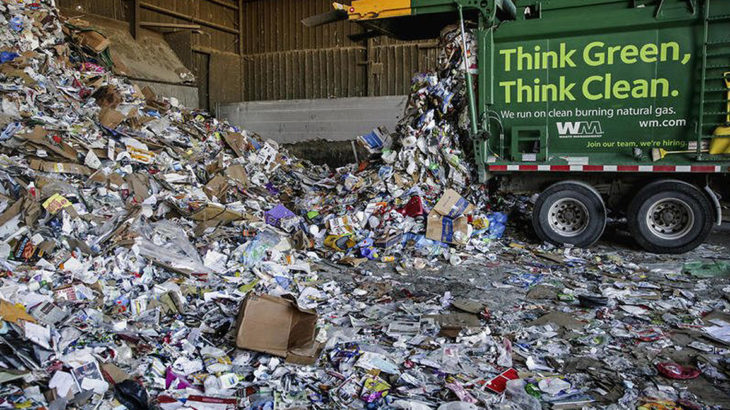
Waste Management 2018 Recycling Environmental Benefits
Waste Management recently completed the tabulation of the 2018 recycling tonnages for company-wide Waste Management operations. In 2018, WM managed the recycling of 10.21 million tons of aluminum, cardboard/paper, scrap metals, plastics, wood pallets, and glass.
When we add other recyclables managed for recycling and beneficial use – such as 3.59 million tons of organics, 1.16 million tons of fly ash, and 0.20 million tons of C&D waste/E-waste, the tons that WM manages for recycling and beneficial use jumps to a whopping 15.3 million tons.
The tons that WM recycled conserves resources, prevents emissions, and translates into impressive environmental benefits:
- 2 Million Mature Trees:Represents enough saved timber resources to produce 3.3 trillion sheets of printing and copy paper.
- 2 Million Cubic Yards of Landfill:Enough airspace to fulfill the annual municipal waste disposal needs for 26.49 million people.
- 9 Billion Kw-Hrs of Electricity:Enough power to fulfill the annual electricity needs of 1.48 million homes.
- Avoided 29.4 Million Metric Tons (MTCO2E) of GHG Emissions:GHG reduction is equivalent to removing 6.19 million passenger cars from the road each year.
- 3 Billion Gallons of Water:Represents enough saved water to meet the fresh water needs of 20.57 million people for a month.
“As you can see, the benefits of Waste Management’s recycling and composting operations in 2018 are significant and important to the environment,” said Marty Felker with Waste Management Sustainability Services. “Given the volatility and challenges associated with domestic and international recycling markets today, our recycling efforts in 2018 strongly reconfirm Waste Management’s commitment to sustainability and the environment.”
“Waste Management’s efforts to manage these materials to beneficial use plays an important role in helping our customers achieve their environmental goals. WM has its own goal of offsetting emissions by four times those we create, and we are on our way toward achieving this goal,” added WM’s Senior Director of Sustainability Susan Robinson.






